Practice Profile: Steven Pennell
Anticipating the pace of the world would eventually resume, in Spring 2020, Claire Elizabeth Barratt and I comprised a list of who we would like to invite to become part of this project's blog site. Intentionally, we left open the types of postings that might find their way to it and included creative practices for which 're-cultivating compassion' may not overtly be a feature but is at the heart of the practice. To include a variety of voices and styles, we have and continue to seek posts by people who, in their own words, sounds, and images, address what compassion might mean to their practice. Knowing not everyone might want to contribute by composing their post, we planned posts based on conversations, exhibitions, or events we have written individually or in collaboration. The first year of this blog featured ten posts, three written by creative practitioners other than Claire or myself, about their practices. After a thirteen-month pause, I returned to the RCC project earlier this year. I decided to revisit that list and write the following post about Steven Pennell, a multi-disciplinary 'mensch' whom I have known for the past two decades and a person I feel embodies compassion and creativity in all he does.
While compassion is the subject of many contemporary conversations and creative practices, it is often a more profound motivating factor than an actual subject. In the quote included on the sidebar of this blog, Glennon Doyle Melton states that "Compassion is a viewpoint, a way of life, a perspective, a habit that becomes a discipline – and more than anything else, compassion is a choice we make that love is more important than comfort or convenience." No matter what media, mode, or subject, choosing to devote one's life to any practice is an act of love and compassion, not only for what we do or its intended recipient but for who we are. Following and diligently practicing a creative passion makes practitioners more knowledgeable about the practice and the world of which it is a part. In doing so, they practice self-compassion and compassion for all with which the practice and practitioner intersect.
Modeling compassion through persistent engagement with our practice and the world in which it transpires, we become not only artists but also educators. Referring to Karen Armstrong's words topping this website, compassion is "a practically acquired knowledge, like dancing." We learn to dance by taking classes in which we are taught the fundamentals by doing and watching others dance. Likewise, we learn to recognize and become compassionate by observing humans display compassion for themselves, the environment, or other living beings. When I met Steven Pennell for the first time many years ago, I immediately sensed I knew this person. After getting to know Steven better, I realized I recognized the compassion he imbues in all he does.
Steven's creative home is in the theater, where he plays many different roles simultaneously. No matter what role(s) —actor or director, stage hand or set designer— Steven performs, his unifying role is 'educator.' Proximate to the high school classroom he had envisioned himself someday teaching in as an undergraduate student at Rhode Island College, after a stint teaching and producing theater for service people and the surrounding community in US Army bases and installations in Western Europe and South Korea, Steven teaches theater courses as adjunct faculty at RIC and URI (The University of Rhode Island).
Steven joined URI in 1996, becoming the part-time 'artist-in-residence' at the College of Education and Professional Studies Providence Campus; around the same time, it moved into the former Shepard Company Department Store building, owned by the State of Rhode Island. Steven's mandate from the then Dean as 'artist-in-residence' was to "figure out what you want to do and find the funding to do it." What Steven found to do morphed into The URI Urban Arts and Culture Program, and in 2007 he became its coordinator.
One of his first projects in late 1996 was "Meet Me at The Shepard Clock," the exhibition title being an expression used by locals when the campus was a department store. Like the cases and tables of fine goods that previously filled the ground floor, vignettes featuring objects reminiscent of the building's history were installed in the windows along Grant Street. Coinciding with the season that once hosted holiday window displays attracting viewers from across the region, the next three years saw a new production. By then, it was evident to Steven that the high-traffic space, which anyone with business or classes in the building or seeking quick and covered passage between Westminster and Washington Streets traversed, although not perfect, was suitable for a series of monthly exhibitions. As he described, these exhibitions, although overwhelmingly comprised of art objects, are, for him, theatrical works he produces not for the stage and a seated audience but for the corridor and the public to whom it belongs passing through it.
Walking through and stopping to look at a picture or object in a public hallway means one is less likely to feel like a trespasser or does not 'belong.' It is more evident that the artworks have been placed there to be looked at. Although a security guard is on duty for the entire building, no receptionist or gallery assistant screens each person walking through silently and judgementally. No admission is charged, or a heavy sales pitch is thrown. One does not feel pressed to buy a bauble or order a coffee or a meal as the price for looking discreetly past the goods and paying customers surrounding the objects one has come to see. These exhibitions are accessible to everyone; they do not require going out of one's way to see them.
No matter what the viewers' stories are or what has brought them to the Shepard Building, the possibility of connecting with the objects in the exhibition remains. For Steven, the theater-maker and educator, his role is to bring the objects into a conversation so viewers may enter into and become part of the discussion too. Steven's curation makes the exhibitions more than displays of objects 'on show' but themselves 'art.'
Generally, a wide-ranging theme unites artworks in the exhibitions; regardless, each artist and artwork tell a unique story. Steven's curation process is not a selection of specific artworks tied to resumes, the marketplace, or academic aesthetic-critical judgments and agendas. Instead, he invites artists, primarily local or with ties to the region, whose work he understands as relevant, often in the broadest ways, to the theme. While he may request specific work from an artist, ultimately, the decision of what to exhibit remains with the artist or organization for most exhibitions.
Despite pride in its creative communities and various established and alternative artistic circles, I have often encountered a less than supportive attitude towards these exhibitions in this city-state. I have heard artists say they choose to refrain from accepting Steven's invitation to participate, despite the openness of the curation and otherwise support for the program, because they feel their identity or the meaning of their artwork is limited by an exhibition's premises. Indeed, the typical didactics and rhetoric one might expect are missing from many of these exhibitions. However, they have been replaced by a more inclusive form of exhibition pedagogy. Isn't this what we are striving for in 2023? For this reason —the overarching intent of this program and the community it reaches— even if I am not focused on exhibiting when Steven has invited me, I elect to participate. It has allowed me to experiment, see my thoughts outside my studio, and have them be seen by people who may never encounter them otherwise.
At the end of June 2023, URI left the Shepard Building. The Rhode Island Department of Elementary and Secondary Education and select state offices remain on site. The Urban Arts and Culture program, with the monthly exhibition program, will continue until the end of the calendar year. Moreover, the public, employees, and visitors to these state offices will continue to benefit for an indeterminate time from the collections of artworks Steven has curated and cared for in the corridors of the upper floors.
In total, there are three collections of artworks Steven has cared for this past quarter century. The largest began in 1993 before Steven joined URI, but he has cared for it since, and it belongs to all Rhode Islanders. The URI Urban Arts and Culture Program hosts the Annual Rhode Island Student Art Exhibition each Spring, from which nine artworks are selected as gifts to the State, forming the Rhode Island Alliance for Arts in Education collection of artworks from Rhode Island public and charter school children in grades K-12. Initially funded by a Kennedy Center grant, this collection of more than 250 framed pictures hangs in the second-floor corridors. Another smaller collection on the second floor consists of paintings gifted to the City of Providence to recognize the culture and history of its Dominican-heritage community. Finally, there is the University of Rhode Island Providence Campus' collection of paintings and three-dimensional pieces on the first, second, and fourth floors. These artworks by Rhode Islanders reflect the journeys we share that are personal as well as communal.
While I have wanted to write about Steven and his practice for some time, I felt the urgency of writing this now as Steven's tenure at URI as Urban Arts and Culture Program coordinator is nearing an end. Furthermore, after twenty-seven years, it is doing so with similar uncertainty with which it began. With URI having vacated the Shepard Building without a new home for its Providence Campus, what will become of the Urban Arts and Culture Program or even the collection of artworks specifically gifted to the URI Providence Campus is undecided. This uncertainty troubles Steven greatly, along with whether the public will have access to their two other collections equal to what they have now. He fears they will disappear into private offices or storage facilities, never to be seen as they were intended to be again.
Initially, Steven's mandate was issued by the Dean of the Alan Shawn Feinstein College of Education and Professional Studies. It was specific to the URI Providence Campus and its arts and culture programming. Ultimately, his willingness to collaborate with artists, private organizations, agencies, and offices of the State of Rhode Island and the City of Providence has expanded the mandate. Whether intentionally or not, Steven Pennell has practiced through curation compassion for all Rhode Island residents and visitors over the past three decades. In so doing, he has educated a population far exceeding the size of a classroom on how compassion can be re-cultivated through creativity.

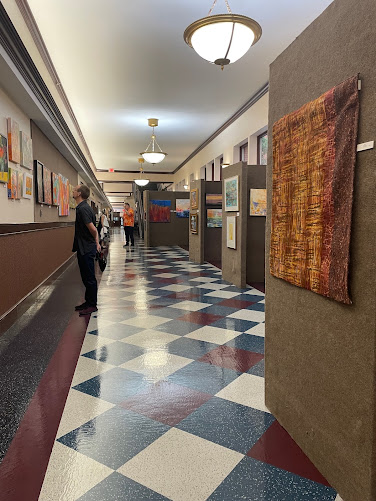
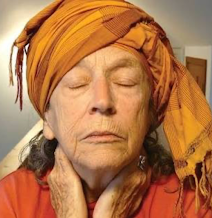
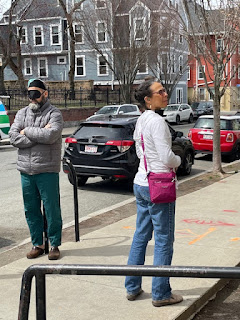
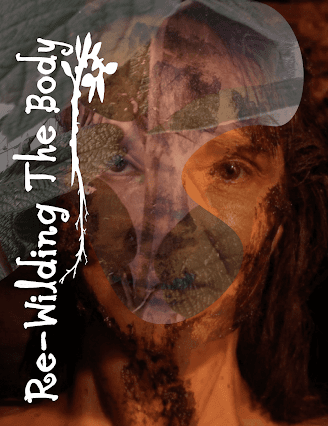
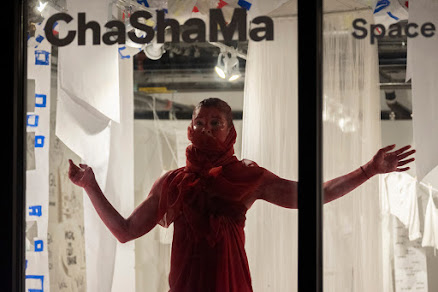




Comments
Post a Comment